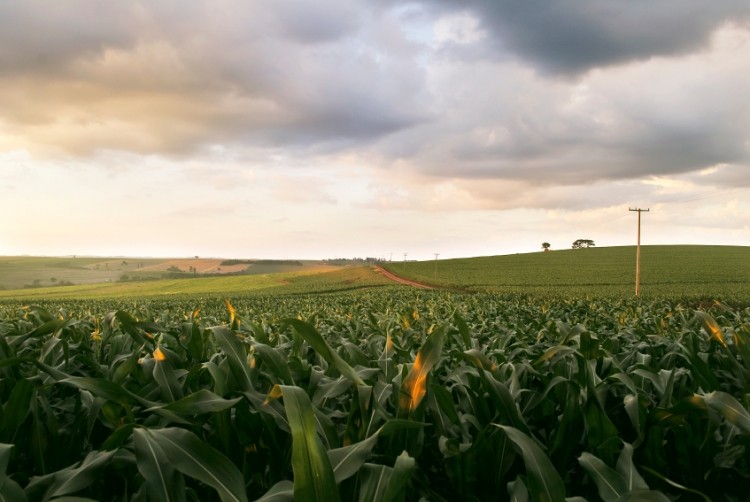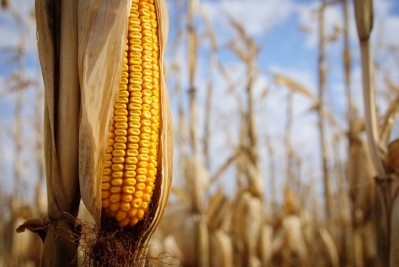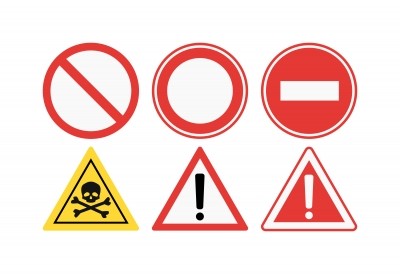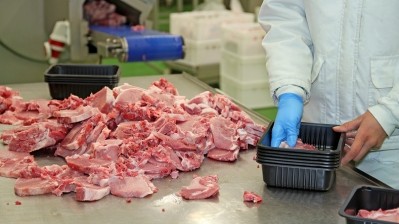Massive hike in Brazil’s corn prices, meat producers under pressure but cooling forecast

In an industry note on Brazilian corn prices, Adolfo Fontes, Rabobank agri-research analyst, noted some of the drives of the high prices: “Pushed by quickly rising exports and the devaluation of the Brazilian currency, not even the traditional seasonal pressure from the summer harvest has been able to bring down cereal prices in the domestic market.”
Over the past 24 months, with the continued devaluation of its currency, the real, Brazilian corn has become much more competitive internationally, especially against other major corn producing countries. “As a result, Brazil’s corn exports gained traction from the second half of 2015,” said Fontes.
Data from Brazil’s foreign trade department (SECEX) shows corn exports for February this year reached 5.4m tons, a volume five times higher than the same period in 2015, reported Rabobank.
And such a rise in exports is expected to last through 2016, or at least until the second corn crop, which is currently being planted, is harvested, said Fontes.
Along with those factors, there is increased consumption of pork and poultry domestically due to high prices for beef, so domestic demand for corn has expanded significantly in 2015/16, reducing carryover stocks to a minimum, said the analyst.
Meat producers’ profits pressured
The domestic animal protein industry has been hit by the high prices for the grain: “Corn is the main animal feed component in Brazil, representing around 60% of all ingredients used in feed production. Any changes in corn prices have a direct impact on the profitability of that sector,” wrote Fontes.
However, he told us the feed industry has been somewhat insulated against the trend: “The animal nutrition industry in Brazil is more focused on trace minerals and other micro ingredients. It is the animal protein industry, which is dominated by large integrated pork and poultry producers, that usually buys macro ingredients such as corn and mixes it themselves.
“However, if corn prices remain at high levels for a longer period, the animal protein industry will probably need to adjust their volumes and, consequentially, the feed industry could be impacted.”
Prices likely to drop
But Rabobank reckons the viability of sustained high corn prices in Brazil is highly unlikely in the medium term.
“We still believe that domestic corn prices will decline in the coming weeks, bringing more balance into this market,” said Fontes.
Despite the strong increase in the futures contracts for the marketing of corn recorded on the Brazilian Board of Trade (BM&F) since the beginning of the year, it is possible that increases in international stocks may press world prices and result in a cooling of domestic corn prices in Brazil, he said.
International developments that could bring down the corn price in the Latin American country include the expectation of a large corn crop in the US, the biggest global exporter of corn, pressuring prices in Chicago. But how this will affect Brazilian corn prices will depend be heavily dictated by exchange rate developments,” said the analyst.
Furthermore, said Fontes, Brazil’s National Supply Agency, to allay meat producer concerns over the high prices for corn, has authorized the auction of 500,000 tons of government stocks to cool the market.
And he noted that planting of the second corn crop has more than doubled since the beginning of March, and has already reached one quarter of the expected total area, despite the heavy rainfall in key producing areas. “Moreover, El Niñomay delay the end of the rain season by six weeks, benefitting yields,” said Fontes.








